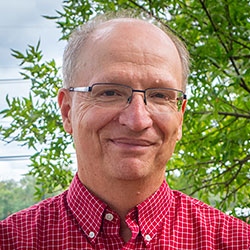Homepage
Rutgers has a long history of being at the forefront of research, teaching, and the practice of science, health, risk, and environmental communication. Bringing these together under the umbrella term “science communication,” the goal of the Rutgers Science Communication Initiative is to enhance the effectiveness, coordination, and visibility of Rutgers efforts in education, research, and outreach to:
- advance the science of science communication;
- train existing and emerging professionals in its practice; and
- create a synergistic community of faculty, students, staff and postgraduate trainees able to communicate about science with diverse publics, including policy makers.
To achieve these goals, the Initiative and our affiliates offer the following opportunities:
Education
- Courses in science communication
- SEBS Minors in science communication and science outreach
- Ongoing workshops, seminars, and continuing education courses for faculty, staff, and external professionals
Research
- Research programs across the Rutgers campuses
Outreach
- Rutgers Science Bus: The Rutgers Science Explorer
- Rutgers Geology Museum
- SEBS Science Café series
- Alternative Science Events
Meet an RU Science Communicator

Anthony J. Broccoli, Ph.D.
My attraction to science began in childhood when I developed a fascination with the weather. I majored in meteorology as a Rutgers undergraduate before going on to graduate school. Prior to my current position at Rutgers, I spent 21 years at the National Oceanic and Atmospheric Administration’s Geophysical Fluid Dynamics Laboratory, one of the world’s premier climate modeling centers.
I teach courses in meteorology/atmospheric science, with climate science as my primary research interest. The goal of my research is to understand the fundamental processes that are involved in climate variability and climate change using numerical models of the climate system. I use these models to look backward to understand how climate has changed in the past, and forward to anticipate how climate will change in the future.
I typically give about ten talks per year to non-specialist audiences at Rutgers and external events. When speaking to these groups, my goal is to convey three points: what we know, what we do not yet know, and the process by which our knowledge advances. I have found this last point to be particularly important, as the methods of scientific inquiry are not always transparent to the larger community.